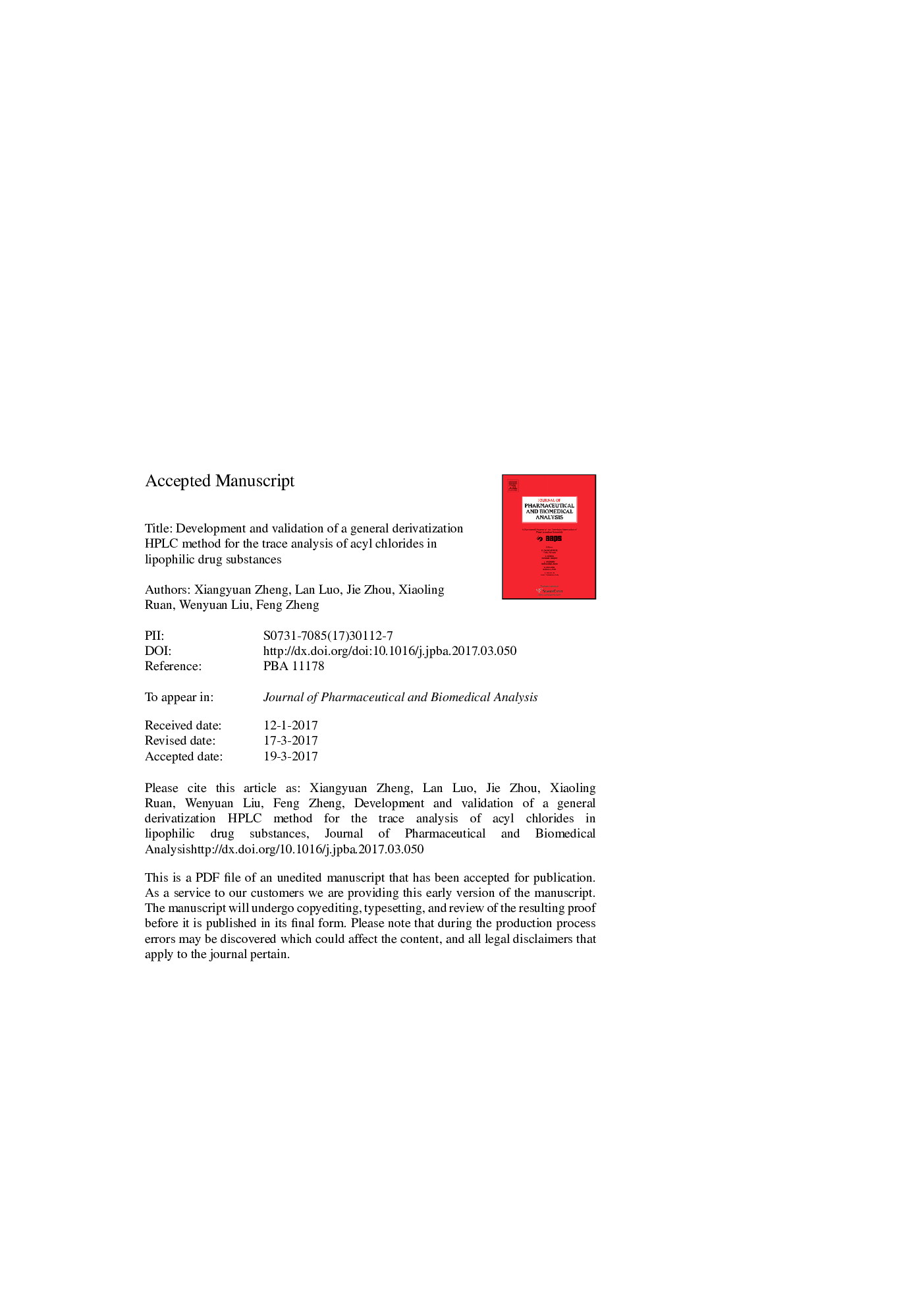| Article ID | Journal | Published Year | Pages | File Type |
|---|---|---|---|---|
| 5138020 | Journal of Pharmaceutical and Biomedical Analysis | 2017 | 17 Pages |
Abstract
Acyl chlorides are important acylating agents in the synthesis of active pharmaceutical ingredients. Determining the residual acyl chlorides in drug substances is a challenge due to their high reactivity and the matrix interferences from drug substances and their related impurities. This paper describes a general derivatization HPLC method for the determination of aromatic and aliphatic acyl chlorides in lipophilic drug substances. Since most drug substances have weak absorptions in the visible range (above 380 nm), the nitro-substituted anilines and nitro-substituted phenylhydrazines were selected as the derivatization reagents due to their weak basicity and red-shift of UV absorption spectra. The maximum wavelength and absorption intensity of nitro-substituted anilines decreased after derivatization with acyl chlorides, whereas the derivatization products of nitro-substituted phenylhydrazines showed the slight increases of maximum wavelength and absorbance intensity. Hence, 2-nitrophenylhydrazine was selected as the suitable derivatization reagent because the derivatives have the maximum UV wavelength absorbance at 395 nm, which could largely minimize the matrix interferences. The optimization of the concentration of 2-nitrophenylhydrazine is important for the sensitivity and stability of derivatives. Other reaction conditions including reaction temperature, time and the influence of three competitive solvents (water, methanol and ethanol) on the reaction efficiency were also studied. After derivatization with 100 μg mLâ1 2-nitrophenylhydrazine at room temperature for 30 min, the method was validated for high specificity and sensitivity with the detection limits in the range of 0.01-0.03 μg mLâ1. The proposed method was applied as a generic method to determine the residual acyl chlorides in lipophilic drug substances.
Keywords
Related Topics
Physical Sciences and Engineering
Chemistry
Analytical Chemistry
Authors
Xiangyuan Zheng, Lan Luo, Jie Zhou, Xiaoling Ruan, Wenyuan Liu, Feng Zheng,
